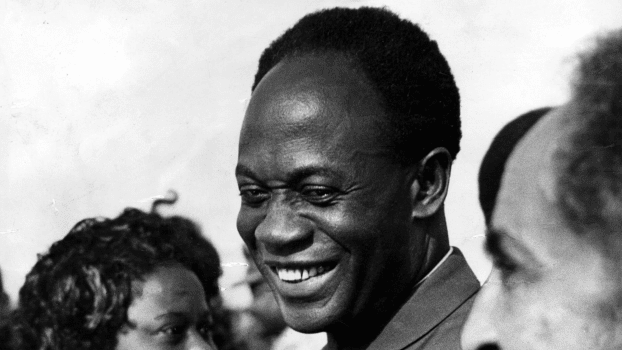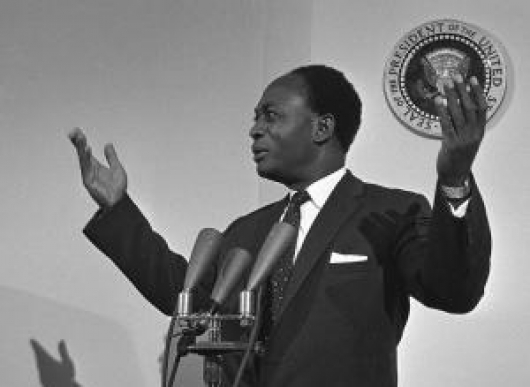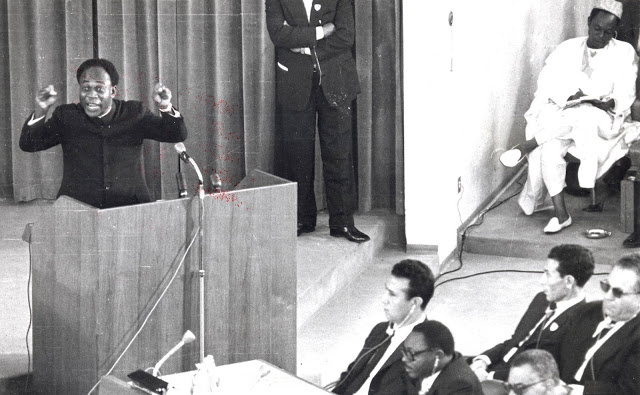 |
| Dr Kwame Nkrumah |
The Founder’s Day has become a very remarkable day on the Ghanaian calendar. It is marked on the 21st day of September every year after its passage by Professor John Evans Atta Mills under the Executive Instrument, 2010 of the PUBLIC HOLIDAY (DECLARATION) INSTRUMENT, E.I 53. The instrument reads “AND WHEREAS the President has determined that Tuesday, the 21st of September, 2010 be celebrated as Founder’s Day in commemoration of the centenary birthday of Osagyefo Dr Kwame Nkrumah, the first President of the Republic of Ghana”. The President’s act was in exercise of his declaratory powers, that is; “In addition to the Public Holidays provided under section 1, the President may in the public interest, by executive instrument, declare any other day to be public holiday” pursuant to section 2 of the PUBLIC HOLIDAYS ACT, 2001 (ACT 601). The President has the power to declare any other day as a holiday, and it must be followed as such. The purpose of this article is to focus on the life achievements of Dr Kwame Nkrumah.
Born Francis Kofi Nwiah on the 21st September 1909 at Nkroful, in the then Gold Coast. Little was gathered about his parents except Nyanibah being the only name known to his mother. He took his elementary education at the Catholic Mission School at Half Assini. By 1925 he was a student-teacher in the school and was baptised in Catholicism, and by 1930 he had become a fully-trained young teacher from the Achimota College. During his teaching job, he was exposed to the ideas of pan-Africanists like Marcus Garvey and W. E. B Du Bois. He also had acquaintances with personalities like Dr Kwegyir Aggrey, Nnamdi Azikiwe and the likes who in one way or the other inspired him and heightened his interest for Black Nationalism. His Alma Maters include Lincoln University, University of Pennsylvania, London School of Economics, University College of London, and the Gray’s Inn. He married Fathia Ritz. His children include; Mr Gamal Nkrumah, Dr Samia Nkrumah and Mr Sekou Nkrumah. He was later invited by the United Gold Coast Convention (U.G.C.C) to serve as its General Secretary, where he later broke away and formed the Convention People’s Party (C.P.P) which gained independence for the country and he ruled Ghana until his overthrown by Gen. J.A Ankrah in 1966. Nkrumah finally died on the 27th of April, 1972 after a short illness.
 |
| Dr Kwame Nkrumah |
First of all, he gained independence for Ghana, the first of its kind in the sub-Saharan region. He also spearheaded political activities in Ghana, and in other countries. He was said to have loaned some money to Guinea to fund their struggle for independence from the colonialists. He also played a pivotal role in the establishment of the O.A.U now African Union (A.U).
Dr Kwame Nkrumah introduced the Socialist and Egalitarian ideologies which sought to serve the people of Ghana, either than leaving the economy in the hands of some group of exploiters looting the coffers of poor citizens in the face of fierce competition. This he did by the construction of the Harbour and Tema Communities, the construction of the Volta Dam at Akosombo which is still the only largest source of electricity to the country as well as the progressing housing projects he undertook which can never escape the minds of the good people of Ghana. He also initiated the Nuclear Reactor Project in 1961, which created the Ghana Atomic Commission in 1963. Also instituted policies that boosted cocoa production making Ghana the largest exporter of the commodity. His uncountable achievements can not all be featured here; the ones I have mentioned are just the least of his achievements.
 |
| Dr Kwame Nkrumah speaking at AU conference, Adis Ababa |
Furthermore, he has been one of the sitting Presidents who has written the numerous books. Some of his works include: Negro History: European Government in Africa, The Autobiography of Dr. Kwame Nkrumah (1957), Africa Must Unite (1963), African Personality (1963), Neo-Colonialism: the Last Stage of Imperialism (1965), African Socialism Revisited (1967), Dark Days in Ghana (1968) amongst other breathtaking works.
In the year 2000, Nkrumah was voted BBC Man of the Year recounting his achievements. Nkrumah is dead and gone, but his ideologies still live on. That is why Nkrumahists would not cease the opportunity to preach his ideologies.
Rest in the best part of the heavens, our Leader, our Mentor, and our Father Osagyefo Dr Kwame Nkrumah!!!
Written by Felix Acquaye
Contact: 0279512614
[email protected]
